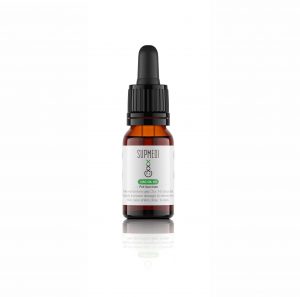
How CBD Helps with Diabetes Symptoms
14 November 2024Diabetes is a complex condition accompanied by various symptoms, ranging from skin problems to neuropathy, and CBD can offer relief. Its pain-relieving and anti-inflammatory properties make it beneficial for many related complaints. In this blog, we explain how CBD oil can support you.
Symptoms of Diabetes
Diabetes is a metabolic disorder in which the body can no longer regulate blood sugar levels. This is a problem in itself but also causes various symptoms. The effects of the condition can be felt throughout the body, including skin issues, neuropathy, and problems with the immune system.
How can CBD help with these symptoms? CBD, short for cannabidiol, is a cannabinoid derived from the hemp plant. It has calming, pain-relieving, and anti-inflammatory properties. It interacts with the body through the endocannabinoid system (ECS), which is responsible for maintaining balance in the body. This system uses naturally occurring cannabinoids but can also interact with plant-based cannabinoids like CBD. These substances send signals to cells, helping regulate processes.
CBD may help alleviate various symptoms associated with diabetes. Below, we delve into how it works.

Diabetes Symptoms: Skin Problems
Changes in the skin are often the first signs of diabetes. The condition can disrupt blood circulation and damage nerves, leading to several skin complaints, such as:
- Acanthosis nigricans (AN): Dark patches on the neck, armpits, elbows, or knees, often an early sign of prediabetes in type 2 diabetes or insulin resistance.
- Bacterial infections: These can cause tissue inflammation, with redness, swelling, and pain. High blood sugar levels can promote bacterial growth.
- Fungal infections: These may cause itchy rashes, flaky skin, and blisters. Common issues include ringworm, athlete’s foot, and vaginal infections. High blood sugar makes diabetic patients more prone to such infections.
- Dry skin: Poor blood circulation and the body’s attempt to expel excess sugar through increased urination can draw moisture from the skin, leading to dryness.
CBD can support skin health by leveraging its anti-inflammatory properties, potentially reducing bacterial infections and soothing irritation. It can be applied directly to itchy or irritated skin or used as a cream. While its effect on blood sugar levels is not fully understood, CBD may help balance these levels in some cases, potentially preventing skin issues.
For bacterial and fungal infections, always consult a doctor for proper treatment.
CBD for the Immune System
Diabetes increases the risk of illness and severe infections. This is because the body struggles to fight off infections effectively. Normally, the immune system identifies infections and combats them using white blood cells (lymphocytes), which defend against bacteria, fungi, toxins, and viruses.
However, high blood sugar levels force many bodily systems to work harder, including the white blood cells. This weakens the immune system, making it less effective. High blood sugar can also trigger inflammatory responses. People with diabetes are more prone to respiratory infections, flu, pneumonia, skin infections, and urinary tract infections.
Through the ECS, CBD can influence the immune system. Its anti-inflammatory properties help reduce the production of pro-inflammatory cytokines, protecting organs. CBD may also support the immune system, helping it respond effectively to infections.

Diabetes and Neuropathy
Neuropathy is a long-term complication of diabetes. High blood sugar can damage the small blood vessels supplying nerves, cutting off nutrients and potentially leading to nerve damage or loss. This can disrupt nerve signals from the brain, causing tingling, burning sensations, or severe pain.
How can CBD help with neuropathy? CBD has neuroprotective properties, meaning it can help protect nerve cells. Additionally, its pain-relieving effects can reduce the severity of pain associated with neuropathy.
Using CBD for Diabetes Symptoms
If you experience symptoms associated with diabetes, consider trying CBD. It is a natural remedy that is safe for long-term use and offers various properties that can enhance your quality of life.
CBD comes in many forms, such as CBD oil, tablets, and edibles. This provides flexibility in how you incorporate it into your routine. Use CBD tablets for convenience on the go, or enjoy a cup of CBD-infused coffee during a quiet moment at home. If you’re new to CBD, start with a low dose and monitor your response over a week. If needed, gradually increase your dose.








